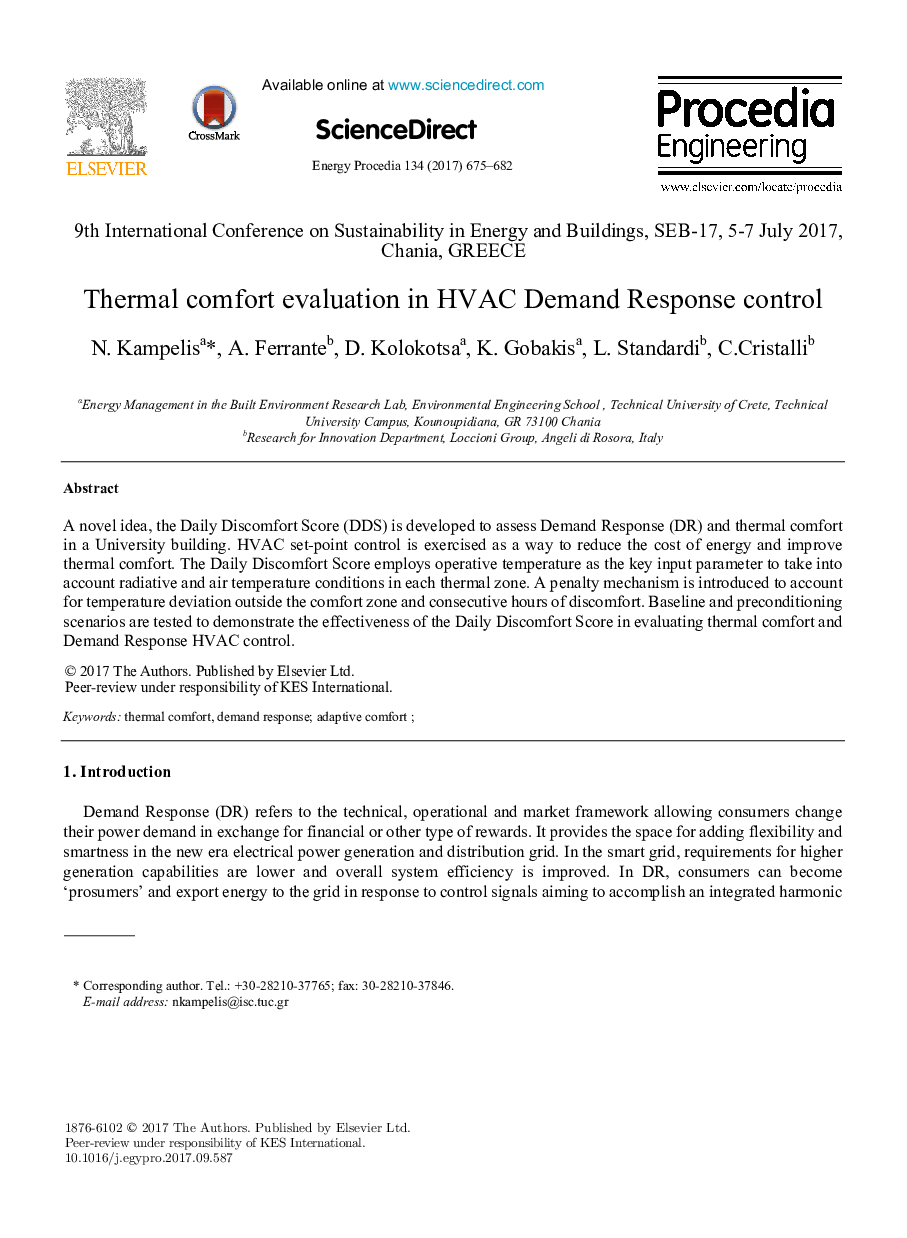| Article ID | Journal | Published Year | Pages | File Type |
|---|---|---|---|---|
| 7919117 | Energy Procedia | 2017 | 8 Pages |
Abstract
A novel idea, the Daily Discomfort Score (DDS) is developed to assess Demand Response (DR) and thermal comfort in a University building. HVAC set-point control is exercised as a way to reduce the cost of energy and improve thermal comfort. The Daily Discomfort Score employs operative temperature as the key input parameter to take into account radiative and air temperature conditions in each thermal zone. A penalty mechanism is introduced to account for temperature deviation outside the comfort zone and consecutive hours of discomfort. Baseline and preconditioning scenarios are tested to demonstrate the effectiveness of the Daily Discomfort Score in evaluating thermal comfort and Demand Response HVAC control.
Related Topics
Physical Sciences and Engineering
Energy
Energy (General)
Authors
N. Kampelis, A. Ferrante, D. Kolokotsa, K. Gobakis, L. Standardi, C. Cristalli,
